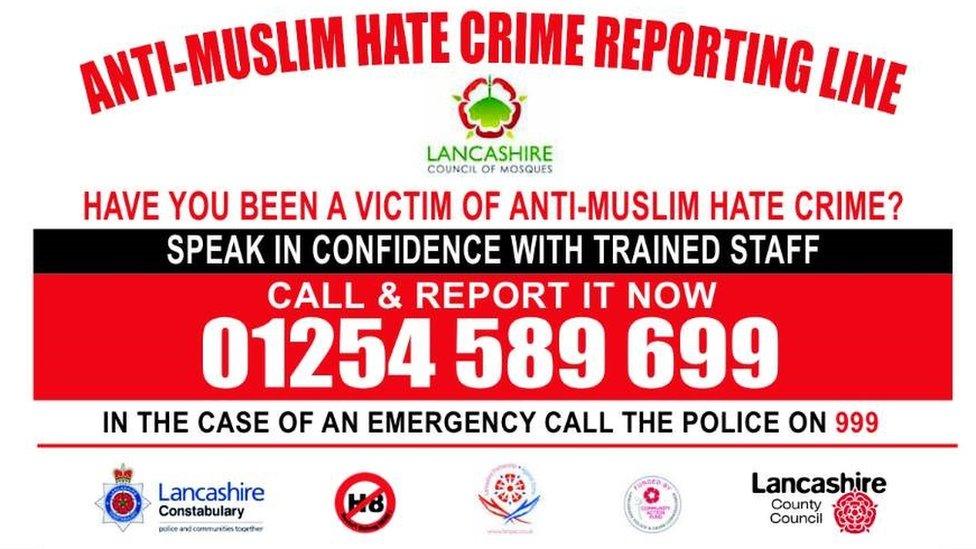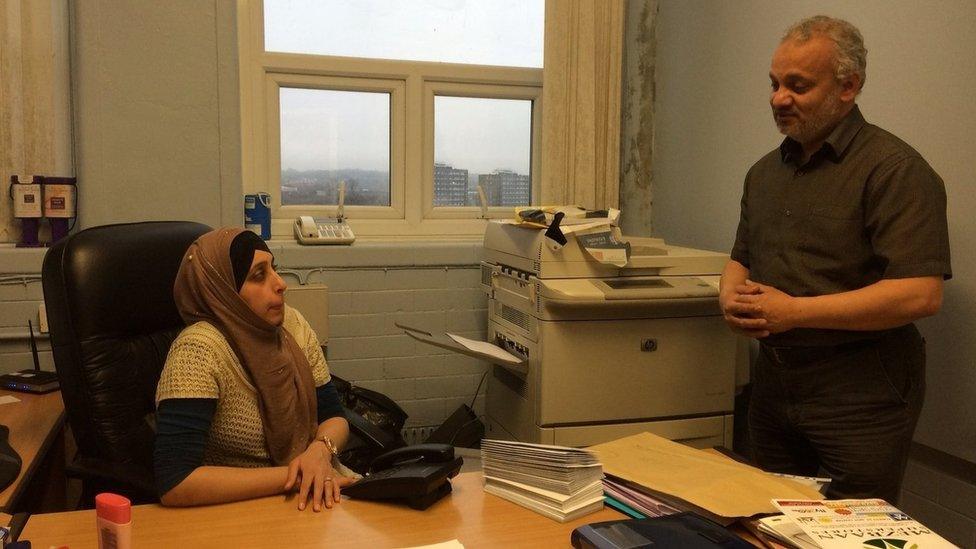Islamophobia and hate crime helpline set up by mosques' charity
- Published

The helpline will open for four hours every weekday
A helpline for victims of racial and religious abuse has been created by a charity representing mosques because some Muslims "don't trust police".
Lancashire Council of Mosques (LCM) chairman Abdul Hamid Qureshi said many "have no confidence in the system".
Between July 2014 and January 2016, 124 incidents were reported but Mr Qureshi thinks the true figure is much higher.
Clive Grunshaw, the county's police and crime commissioner, said the issue of hate crime was one he took seriously.
"Muslims are generally mistrustful of the police, for all sorts of reasons," said Mr Qureshi.
He said this was because "sometimes they report an incident and they are questioned about other things, so they don't think there's any point in reporting".
Speaking about Islamophobia, Mr Grunshaw said: "We want people to come forward. We've also launched Victims Voice to provide enhanced support."
'Like-minded people'
The new helpline, which cost £4,000 to set up and is part funded by Mr Grunshaw's office, will launch at the end of February.
Mr Qureshi said it was being set up following research commissioned in 2014 by the county council and police which examined why some Muslims were not reporting incidents.
It is believed to be the first hotline run by an organisation representing a group of mosques in the United Kingdom.
Lancashire Police said "third-party reporting centres" were, at their best, "like-minded people sharing confidences".
A spokesman said such schemes make it easier to support victims and prevent further abuse.
The LCM plans to publicise its helpline in more than 100 mosques and Islamic schools, which it has represented since 1989.
It will operate for four hours on weekdays and people can report any type of abuse from verbal to physical to staff, who have been trained by police.
Mr Grunshaw said: "It is really important for incidents to be reported, so that we have a better understanding of what's happening in our communities.
"We know there is under-reporting but gradually, the message is getting out there."
Calls will be logged anonymously or by name, along with details of the crime - the most serious, with the permission of the caller, will be passed to police.

Abdul Hamid Qureshi is chairman of the Lancashire Council of Mosques